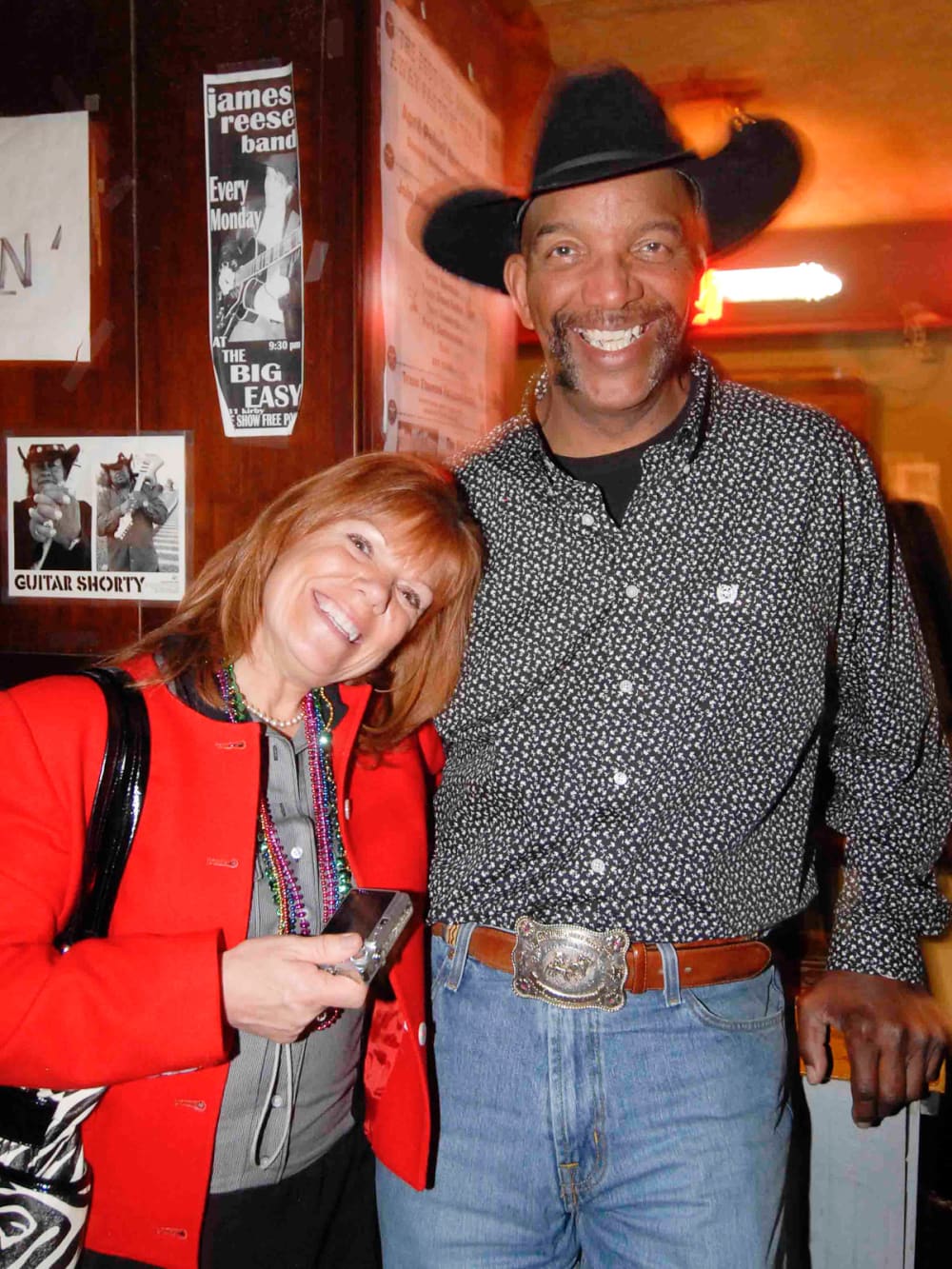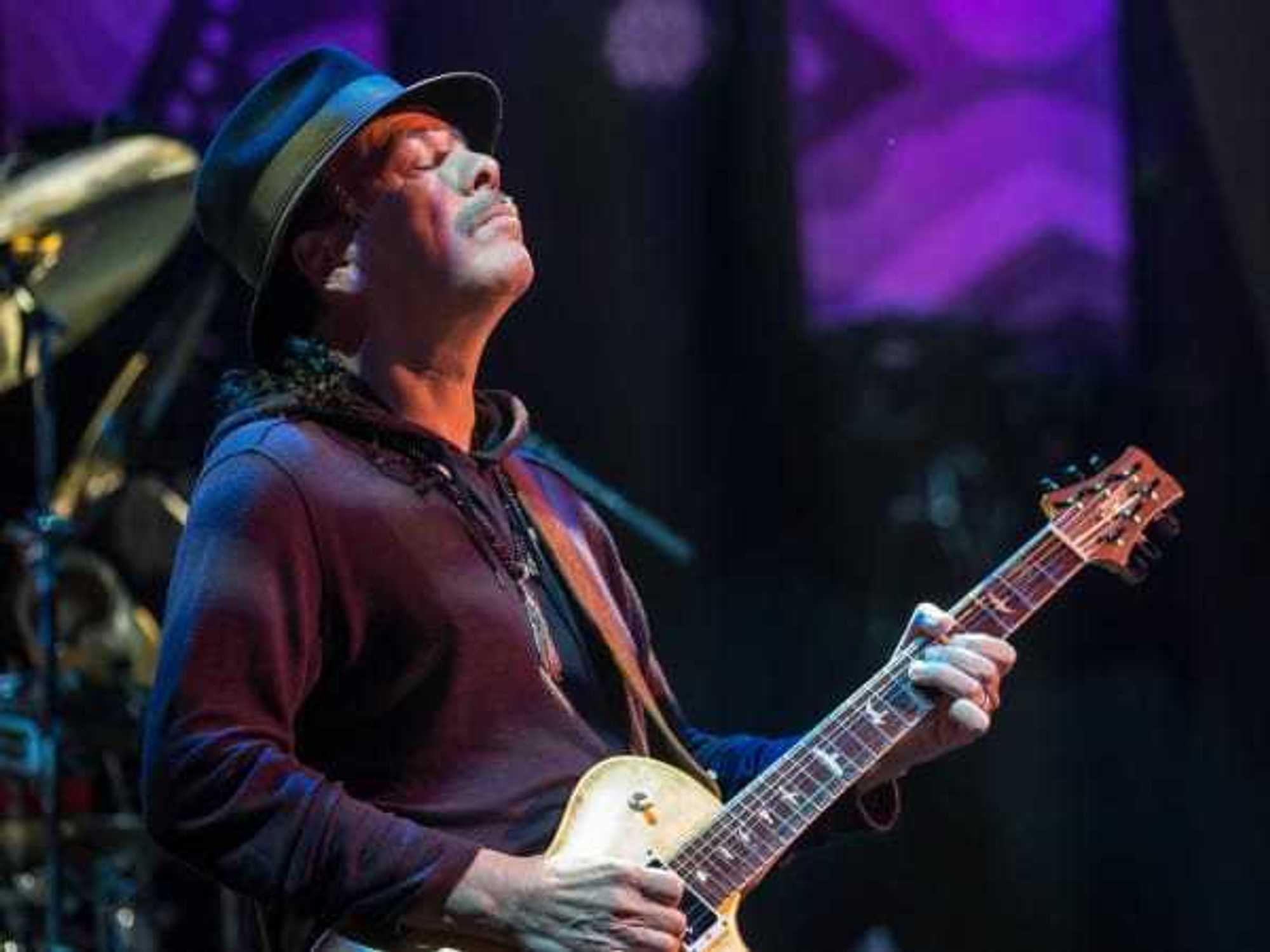We ♥ HOU
Once the music starts, differences disappear at The Big Easy
 Sylvia Camarillo, left, and Rick Mikeska get down at The Big Easy, both a musicvenue and a state of mind, an old-fashioned blues roadhouse with a distinctMardi Gras flairPhoto by Tony Bullard
Sylvia Camarillo, left, and Rick Mikeska get down at The Big Easy, both a musicvenue and a state of mind, an old-fashioned blues roadhouse with a distinctMardi Gras flairPhoto by Tony Bullard Tom McLendon is owner, bouncer, payroll officer and sometimes janitor of the BigEasy. He opened it 16 years ago.Photo by Tony Bullard
Tom McLendon is owner, bouncer, payroll officer and sometimes janitor of the BigEasy. He opened it 16 years ago.Photo by Tony Bullard Bridgett Warren celebrates at The Big Easy.Photo by Tony Bullard
Bridgett Warren celebrates at The Big Easy.Photo by Tony Bullard Chris Sitz leans against one wall where a large framed sign with “Save NewOrleans” is written out in red St. Arnold’s beer bottle caps.Photo by Tony Bullard
Chris Sitz leans against one wall where a large framed sign with “Save NewOrleans” is written out in red St. Arnold’s beer bottle caps.Photo by Tony Bullard Richard Blye and partner dance cheek to cheek.Photo by Tony Bullard
Richard Blye and partner dance cheek to cheek.Photo by Tony Bullard Pearce Baldwin enjoys a game of pool.Photo by Tony Bullard
Pearce Baldwin enjoys a game of pool.Photo by Tony Bullard Linda Jack, left, and Bo Lundford at The Big EasyPhoto by Tony Bullard
Linda Jack, left, and Bo Lundford at The Big EasyPhoto by Tony Bullard
The Big Easy is both a music venue and a state of mind, an old-fashioned blues roadhouse with a distinct Mardi Gras flair. Sandwiched between a tire dealership and a pizza joint, the nondescript building on Kirby Drive draws little attention from the countless drivers who pass by every day.
Yet, some European blues fans actually plan their vacations around visits to this place. With sizzling sets of R&B most Fridays and Saturdays and zydeco every Sunday, it attracts people of all backgrounds, attitudes and (drinking) ages who mingle good-naturedly. The differences disappear once the music starts.
On a recent Saturday, a man on roller skates greeted incoming patrons with strings of Mardi Gras beads, but paused every now and then to do Charleston steps to the swamp-rocking Tommy Dardar Band. In the corner, a banker and a cowboy shot pool as a couple of punk-attired patrons drained shot glasses at the bar. A man in a dinner jacket, an elegant paisley velour vest, raggedy jeans and scuffed cowboy boots watched folks pour through the front door, smiles of anticipation on their faces as a man wearing a fake sheriff’s badge stamped their hands.
The walls are lined with framed vintage photos of blues artists, the ceiling strung with colored Christmas lights. Against one wall is a large framed sign with “Save New Orleans” written out in red St. Arnold’s beer bottle caps. Above the bar, patrons have stapled ticket stubs from music shows elsewhere. Even after a concert, it’s good to wind down listening to more music here.
Against the back wall stands owner Tom McLendon, wearing a black T-shirt and his trademark dark sunglasses, his arms crossed, silently surveying the crowd. Despite his formidable appearance, his congenial (and sarcastic) nature is obvious once he starts talking.
“I’m just watching what’s going on,” he says, but really he’s scouring the club for any potential problems, like drunks getting out of hand, which he considers the worst part of his job. McLendon obviously loves the Big Easy – why else would he devote his life to it? – but he also resents it at times.
“I call it my chronic anvil – something in life you’re beat upon,” he says. “Sometimes, I feel somewhat biblical.”
McLendon is owner, bouncer, payroll officer and sometimes janitor of the Big Easy. He opened it 16 years ago -- today is the anniversary – after attending JazzFest in New Orleans 13 years in a row and getting the inspiration to bring something like that to Houston.
He named it the Big Easy Social and Pleasure Club “House of Mixology” after New Orleans’ many social aid and pleasure clubs, the first form of insurance in African American communities where, for a small dues, members received help when sick and financial aid for the funerals of those who died.
“They were community service organizations, and I think of this place as community service,” McLendon said. “I don’t make money. I’ve actually ruined my life with this. But I wanted to allow music to change people’s lives if they’re open to it.”
Altruism aside, musicians turn to the Big Easy in times of need. As they age, medical bills pile up and a serious illness can bankrupt them since few have health insurance. McLendon offers the club to host benefits to help raise money for their bills. When they die, he offers the club to their families to help with funeral expenses. Blues and zydeco artists come out of the woodwork to play for free.
And the House of Mixology?
“That’s not something we make at the bar,” he said. “It’s using music as a spiritual force to bring people of all races and attitudes and ages together and allow them to live together on this tiny and unhappy planet.”
Standing outside to get some fresh air, London transplant Linda Jack, who now lives in Cypress, just can’t get over how friendly everyone is inside. “They’re so easy to talk to,” she says. “I’ve never been anywhere like this.”
She’d never heard of the Big Easy before friends brought her there that day. “Look at this building, look at the front door,” she said, gesturing to an admittedly rough door on a somewhat shabby-looking building. “If friends hadn’t taken me here, I’d never walk in there by myself. And I really would have missed a great time.”
Inside, Tommy Dardar is singing “Mardi Gras Mambo,” and the floor is thick with dancers, including a woman in a tie-dyed sundress (in January), black cowboy boots and a multi-colored boa that swirls in the air when she turns. A couple from France are attempting to coordinate a series of dance steps and laughing uproariously when one of them misses a step.
McLendon leans against the wall, taking it in. “After I opened the club, I never did get back to JazzFest,” he says. “I never had the time or money. Be careful what you wish for – you might get a chronic anvil.”
Then he smiles.
